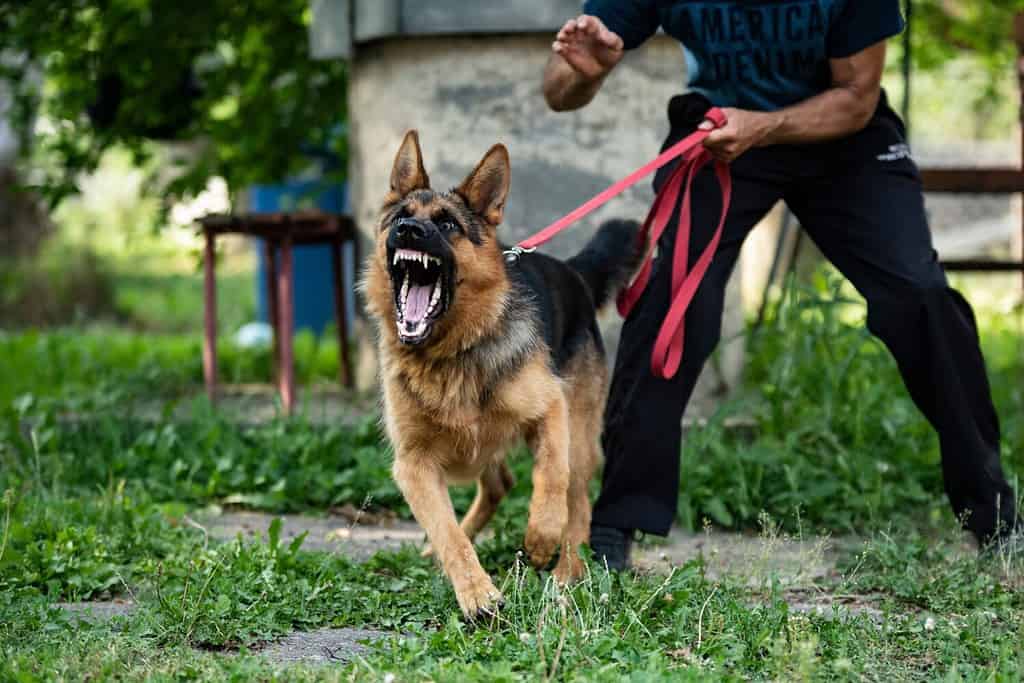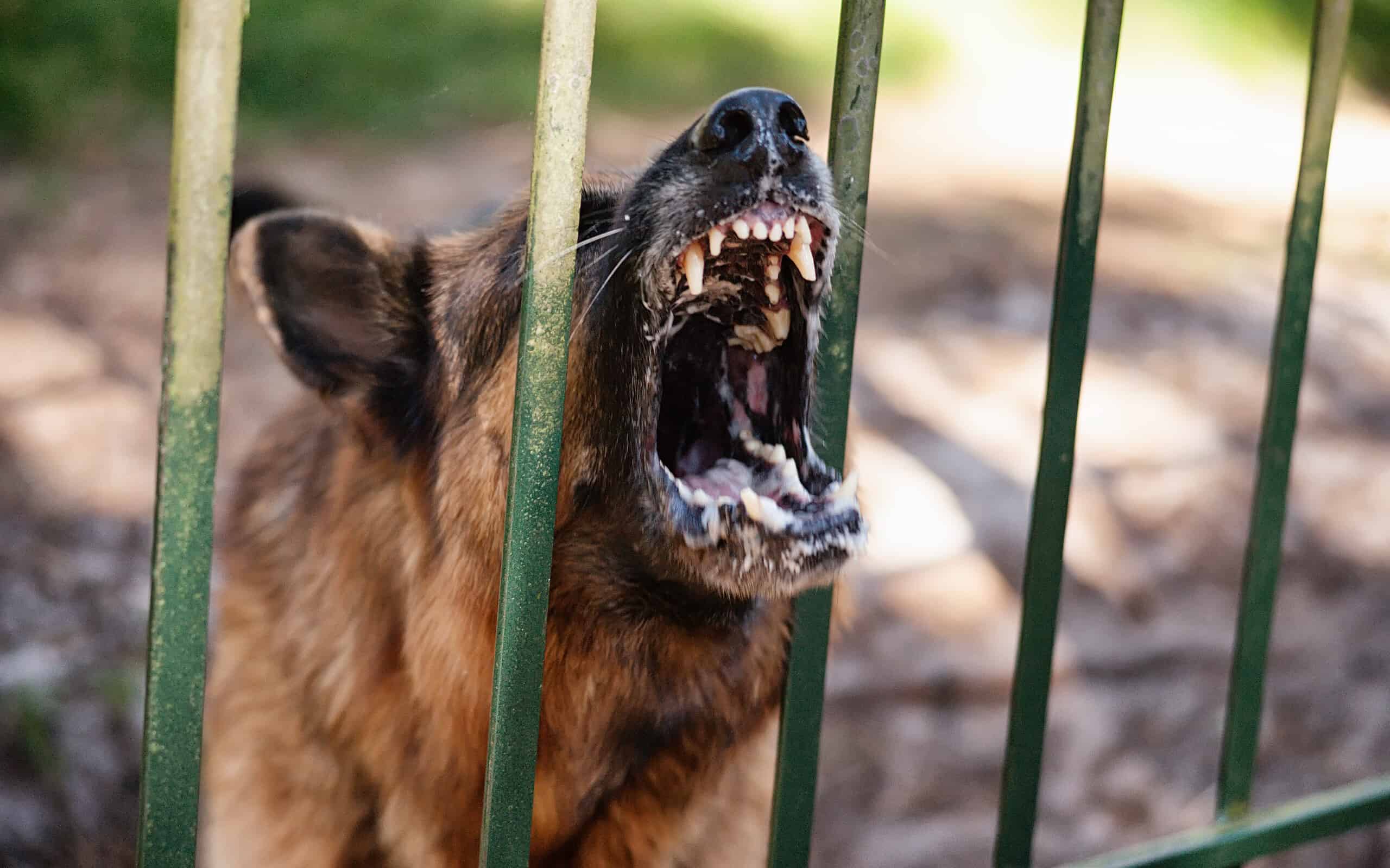King Shepherds can be dangerous, just like any other dog breed. They aren’t technically a purebred dog breed, as the AKC or any other major kennel club doesn’t recognize them. However, they do have their own club that works to regulate their breeding and help ensure they have a stable, sound temperament.
In fact, according to the American King Shepherd Club, these dogs should not be aggressive. They urge breeders to prioritize temperament very high.
King Shepherds should be very affectionate and loving with their families. They tend to be exceptionally loyal, in fact. However, they tend to be standoffish with strangers and even family friends. They may also have some protection instincts, which can make them dangerous if not properly socialized.
Luckily, these dogs are very intelligent and trainable. They’re often bred with trainability in mind, which helps ensure that they can be trained and controlled.
Keeping all of that in mind, genetics is only half the story of a dog’s temperament. How you raise the dog is also essential, especially when you have a large (and potentially dangerous) dog like the King Shepherd.
How to Prevent Aggression in King Shepherds
If you have a King Shepherd, it is your responsibility to take the steps necessary to prevent aggression. Because these dogs get very large, they can do a lot of damage if they become aggressive. If you don’t have the time or ability to take these preventative steps, you shouldn’t adopt one of these dogs.
Socialization is the best way to prevent aggression in King Shepherds. You should start introducing your puppy to new people, places, and animals at a very young age. Showing your puppy that all of these different situations are normal and not scary can prevent fear in adult dogs.
Many dog bites are caused by fear, so it’s important to prevent it as much as possible.
Dogs have a critical socialization period that lasts until around 16 weeks of age. Therefore, you should socialize your puppy as much as possible between when you bring them home and the end of this socialization period. Socializing older dogs is possible, but it is much harder.
You should also train your dog as soon as you bring them home. These dogs get very large, so it’s important that you can control them through commands when they are older. Enroll them in puppy group classes as soon as possible, as these provide some socialization and help kickstart training.
Your dog should learn all of the basic commands, like “sit” and “stay.” Practice these commands in a range of different situations to ensure that your canine gets plenty of chances to practice.
Correctly caring for your King Shepherds can also help prevent aggression. These dogs require a great deal of regular exercise. If your dog has a lot of pent-up energy, they’re much more likely to accidentally hurt someone. Mental stimulation is also important. These dogs can be fairly intelligent, so they can get bored easily.
Bored dogs often try to make their own fun, which leads to aggression. A bored dog is much more likely to develop behavioral issues, including aggression.
Are King Shepherds Good with Children?

King Shepherds are
closely related
to German Shepherds and share many of their temperament traits with them.
©Ira Bushanska/Shutterstock.com
Because these dogs are so large, many are reluctant to have them around children. However, these dogs are generally friendly and patient with children. These canines can be great companion dogs when properly socialized (and cared for). After all, they’re mostly bred to be companion dogs.
Of course, if you have children in your family, it’s even more important to socialize and train your dog well. You should expose them to your children as much as possible, as well as other people’s children. Just because your dog is often around your children doesn’t mean they’re socialized with strangers’ children.
In fact, these dogs can be protective of their children, which may lead to them trying to protect their children from other children. As you might imagine, this can result in tragedy. Roughhousing is particularly troublesome, as the King Shepherd may not be able to interpret play from actual aggression.
Luckily, socialization can help this immensely. If your dog is trained, controllable, and socialization, they can be loving companions. Of course, this is a lot of work. Therefore, you must ensure you have the time, energy, and ability to properly care for your King Shepherd.
Ready to discover the top 10 cutest dog breeds in the entire world?
How about the fastest dogs, the largest dogs and those that are -- quite frankly -- just the kindest dogs on the planet? Each day, AZ Animals sends out lists just like this to our thousands of email subscribers. And the best part? It's FREE. Join today by entering your email below.
Thank you for reading! Have some feedback for us? Contact the AZ Animals editorial team.








